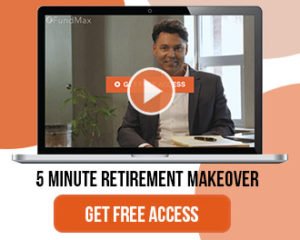There are many different options with trust funds and estate planning that can be complex in preparing your asset protection plan. If you are not aware of at least the basic terms you might have a more difficult time communicating with an attorney on the subject. Better understating more about trust funds can help you know what you are getting yourself into when you meet with a financial professional.
First I am going to explain exactly what a trust is then go into some of the options available to you.
What Is a Living Trust, and when Is It Too Late to Get One?
A living trust is a legal document you make while you’re alive to take care of you, your family and your property If you become incapacitated or pass away. It’s too late to make a living trust if you’re totally incapacitated. The law requires people to know what they’re doing when they make a trust. That’s what we call “legal capacity.” So if you have dementia, and of course if you’re deceased, it’s too late to create a living trust.
Is My Old Trust Garbage, and Can I Change It?
If I have a trust and I bring it to you, is it garbage? Am I going to have to start over? No, not necessarily. We would sit down and have a discussion about what you’re trying to accomplish. In some cases, we can amend the trust, which is just a process where we change part of the language. If you have substantial changes, we might do a restatement of the trust, which is a total replacement, but we will use parts of your existing estate plan, even in the worst-case scenario.
What’s the Difference Between a Revocable Trust and an Irrevocable Trust? What Can Be Changed?
The major difference is that you can’t change as much of an irrevocable trust as you can with a revocable trust. So even though a trust is irrevocable, there are often parts of it that can still be changed. A revocable trust is the type of trust that can be completely changed and completely cancelled.
There are different types of irrevocable trusts. They are created for larger estates, for estate tax planning purposes. They’re also done a lot for long-term care, nursing-home protection planning. One part of those trusts that typically can be changed is who the trustee is. If you appoint your son, your daughter or a bank, but you want to change that in the future, you can do so in an irrevocable trust. Also in an irrevocable trust, you can move if assets or accounts you have put into the trust. Let’s say you have an account with a big financial institution and you want to move it to another; you can do that. Your assets are not locked into a particular type of ownership. They can be changed within the trust, as long as they remain in the trust, in most cases.
Another major area of the irrevocable trust that can be changed is who the beneficiaries are when you pass away. When you create those types of trusts, you often retain the right to change the beneficiaries. So if one child is extremely financially successful and doesn’t need the money but another child needs it more, you can make those sorts of adjustments in the future. In most cases, even if you write an irrevocable trust, you reserve the right to make changes to it.

When Would You Make an Irrevocable Trust?
These days, an irrevocable trust created as protection comes up mostly in two different situations. One is in a case in which someone is concerned about depleting his or her estate from long-term care or nursing-home costs. The law allows people to make what we call a “Medicaid asset protection trust,” which is an irrevocable trust. You can put some of your assets or accounts into that trust. After five years, those assets are not at risk of having to be spent down to qualify for nursing home benefits.
A second scenario in which an irrevocable trust is created for protection is when someone has a very large estate that would be subject to estate taxes if they pass away. Typically for a single person, we’re not going to be concerned about that until assets exceed $5 million or so, and for a married couple, above $10 million in assets., There are different types of irrevocable trusts that you can use to get assets out of your estate, so the government doesn’t apply the estate tax to them when you pass away.
Addressing Problems by Assigning a Trustee
Now let’s get into some of the technical aspects of different types of planning and the various options you have with those methods.
There are a few ways to approach estate planning and long-term-care planning.
- The ideal way might be in someone’s revocable living trust. A problem I see with a lot of these trusts that are drafted by attorneys is they just say, “If I become incapacitated, my trustee should use my assets for my health education, maintenance, and support.” But often, when people are 85, they’re not really concerned about furthering their education at that point, especially if they’re incapacitated. That kind of provision doesn’t have a lot of effects, and there’s no definition of what it means to maintain or support someone if they’re incapacitated, other than just paying their bills.
- If we have a client who has followed my advice and looked into getting one of those hybrid or asset-based long-term-care policies, often we’re not going to have to worry about them depleting their estate on long-term care because they’ve already taken care of that. In that case, we would want to include in their living trust a section that describes what the trustee, the person who is acting on their behalf, should do if they become incapacitated. So we include in the trust that it will help pay for that person’s care, and he or she does not want to be moved to a Medicaid nursing home with a roommate he or she has never met before. If you want to be taken care of in your home, and you can use this policy to pay for in-home care. We won’t have to worry about depleting your estate because it’s already taken care of.
- Sometimes people have dementia that is so bad that they can’t be left alone, or they need such a high level of medical level care that they might need to be in some type of long-term-care facility. The trust could be drafted to say, “My trustee can admit me to an assisted-living facility to help pay for my care or take care of me, but my trustee should make sure I’m being taken care of there. He or she can use some of these funds from the long-term care policy to hire a nurse to check on me monthly or weekly, whatever the case may be.”
- One plan might be to avoid such facilities as long as possible, as long as it’s reasonable to do that because you’ve already taken care of how to pay for it. Not everyone will want to get one of these policies, or they might not have enough money to do so. In those cases, we have to be more concerned about protecting your estate from a Medicaid spend-down. For a married couple, there are provisions we can build into a living trust to protect half or a part of the estate, or maybe more in some cases, for the surviving spouse. It can get really technical, so I won’t go into a lot of detail here, but please know that we can build provisions into a living trust to protect against being placed in a long-term-care facility.

Mistakes That Trustees Often Make
As you can imagine, there are some mistakes that a trustee or caretaker for the trust can make. Usually, mistakes happen when someone’s parent has either become incapacitated for a long period of time, and the trustee is paying the parent’s bills and handling his or her money, or the trustee is trying to settle the estate when the parent passes away. Unfortunately, a lot of probate litigation cases occur all the time when trustees don’t do their job well.
When someone has a trust and then becomes incapacitated or passes away, the trustee becomes a fiduciary, which means he or she has to act in the best interest of the trust and the people who are involved in it. Some people just don’t have that personality. As a fiduciary, they are supposed to be reasonable. They’re supposed to learn about the ramifications of a decision before they make it and not act hastily or impulsively. It means they’re supposed to be fair. Sometimes people think being the trustee means that they’re totally in charge, they don’t have to listen to anyone else, and they can act on their own timetable.
The law generally requires trustees to settle trusts in a reasonable amount of time and make prudent decisions. That means they can’t sell the property up north to themselves for $50 when it’s worth $200,000, for example. It also means they have to keep the other beneficiaries informed about what’s going on in the estate, and they have to prepare reports. So, even though they are not in a probate court, settling an estate, they still need to follow legal responsibilities that they’re often not aware of because there is no court involved to tell them that.
What’s the Advantage of an Attorney Who Specializes in Building and Managing Trusts?
What’s the difference between an attorney who can prepare a will or a trust and one who specializes in those types of documents? The difference between an attorney who just dabbles in estate planning or specializes in it is big. If you hire an attorney who does not specialize in estate planning, once he or she passes the bar, that attorney could handle a murder trial this week, a big business litigation lawsuit next week and then work on your trust the following week. That’s not going to produce the best result because each area of law has become so specialized and focused. To stay up-to-date on laws and legal precedents, an attorney needs to spend most of his or her time counseling people in specific areas.
Every week, new case laws are issued in written reports. Attorneys need to study them to see how the courts are interpreting laws that the state legislature has passed, as well as cases regarding probate, taxes, long-term care, and capacity planning. Attorneys who are focused on estate planning and elder law and working in those areas every day will know how to apply all this experience to your situation. It’s like a cardiologist who has been practicing for 10 or 20 years. He or she can make a diagnosis and recommend treatment much faster and more accurately than a doctor who is a generalist or just getting started in a medical practice.
Download the Retire Happily Estate Planning Book
‘The Ultimate Guide to Estate Planning‘.
This free educational ebook explains estate planning as simple and complete a possible.





